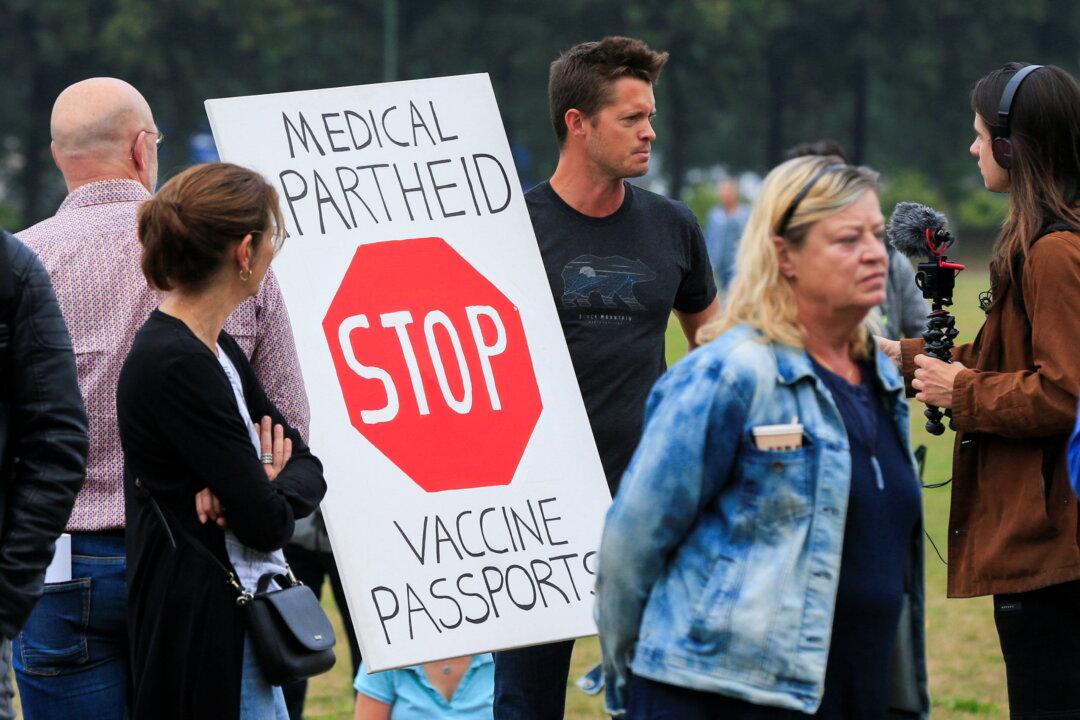THE HAGUE—Protesters gathered to march against the introduction of a “corona pass” in the Netherlands on Saturday as proof of COVID-19 vaccination became compulsory to get into bars, restaurants, theaters, and other venues.
The new requirement to show the pass, or a recent negative coronavirus test, coincided with the lifting of almost all social distancing measures in the country, where 72 percent of the population has received at least one vaccine dose.





